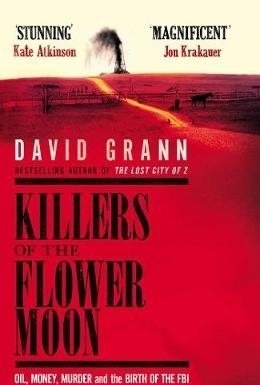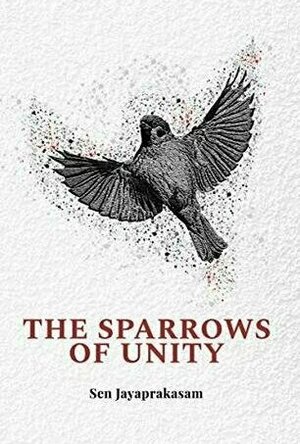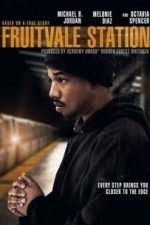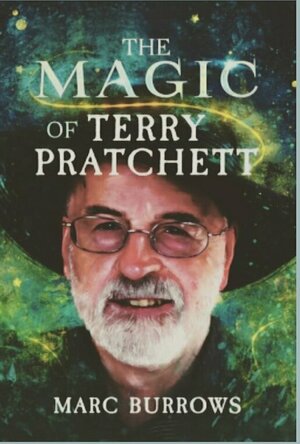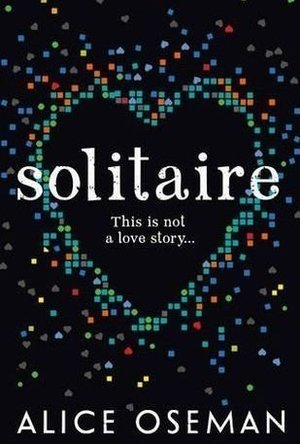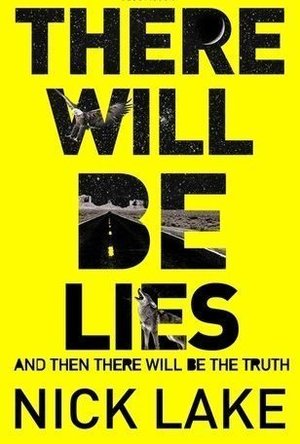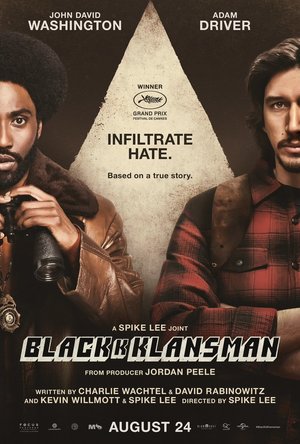Search
Hazel (1853 KP) rated Killers of the Flower Moon: The Osage Murder and the Birth of the FBI in Books
Dec 7, 2018
<I>I received this book for free through Goodreads First Reads.</I>
It is well known that throughout history, facts have been omitted from history books. Written accounts of events ostensibly make important figures and countries appear to be in the right, whereas reality reveals otherwise. One such exclusion is the fate of the Native Americans inhabiting the southern states at the beginning of the 1900s. Children are brought up to believe the stories that “Red Indians” are bad and the cowboys are good, but this was unlikely the case. David Grann has researched into a particular period of Native American history that most people may never have heard of.<I> Killers of the Flower Moon</I> reveals the horrors innocent people faced at the hands of perfidious criminals.
The majority of the book is written as a third person narrative, recounting the lives of some of the members of the Osage Indian Nation in Oklahoma. White people, believing themselves to be superior, had forced the natives off their homelands and onto rocky, unwanted ground. What they did not anticipate, however, was the abundance of oil residing beneath the surface. The Osage went from being oppressed to being the wealthiest people in the state. Full of avarice, the whites were not going to let them get away with this fortune for long.
David Grann takes a particular interest in Mollie Burkhart, an Osage member with a white husband. Mollie had three sisters, but within a few short years they were all dead, and so was her mother. Believing they had been murdered, Mollie fears for her life. Other Osage members were also being killed, as well as those who tried to investigate the spreading slaughter. However, the case remained stubbornly unsolved.
Nevertheless, there was still hope for Mollie after the arrival of Tom White, an agent of the soon to be known as Federal Bureau of Investigation (FBI). Determined to get to the bottom of the so-called Reign of Terror, Tom and his team carefully analyse the behaviours and motives of the disingenuous citizens, narrowing down the suspects until eventually finding their duplicitous killer.
Learning about this unknown period of history is eye opening and offers a completely new view on the relations between whites and Native Americans. It was a time of prejudice and racism, not unlike the attitude towards black people emphasised with the civil rights movement in the mid-1900s. Greed was a significant motivator, particularly where making money was involved. But, David Grann does not stop here.
The final section of <i>Killers of the Flower Moon</i> is written from the author’s perspective. As a staff writer at <i>The New Yorker</i>, the evidence of the Osage murders case intrigued David Grann, but he was concerned about some unresolved holes in the story. Determined to uncover the truth, Grann conducted his own research to discover the culprits behind the undocumented murders unrelated to Mollie Burkhart’s family. What he stumbles on highlights the severity of the dark fate the Osage Indians were threatened with.
Despite being written as a narrative, it is obvious that <i>Killers of the Flower Moon</i> is a work of non-fiction. It lacks emotion and character insight, however, since it is not meant to be a fabricated story, these elements are not required. Instead, it shocks and disturbs the reader with its unbelievable truths.
An extensive biography proves the authenticity of David Grann’s revelation. With the reinforcement of FBI files, jury testimonials, statements, court transcripts, letters, telegrams, diaries and confessions, Grann produces a strong historical record of events that should not be glossed over. Without authors and books such as <i>Killers of the Flower Moon</i>, people will blindly go around believing falsehoods. The truth needs to be discovered, and readers can start by reading this book.
It is well known that throughout history, facts have been omitted from history books. Written accounts of events ostensibly make important figures and countries appear to be in the right, whereas reality reveals otherwise. One such exclusion is the fate of the Native Americans inhabiting the southern states at the beginning of the 1900s. Children are brought up to believe the stories that “Red Indians” are bad and the cowboys are good, but this was unlikely the case. David Grann has researched into a particular period of Native American history that most people may never have heard of.<I> Killers of the Flower Moon</I> reveals the horrors innocent people faced at the hands of perfidious criminals.
The majority of the book is written as a third person narrative, recounting the lives of some of the members of the Osage Indian Nation in Oklahoma. White people, believing themselves to be superior, had forced the natives off their homelands and onto rocky, unwanted ground. What they did not anticipate, however, was the abundance of oil residing beneath the surface. The Osage went from being oppressed to being the wealthiest people in the state. Full of avarice, the whites were not going to let them get away with this fortune for long.
David Grann takes a particular interest in Mollie Burkhart, an Osage member with a white husband. Mollie had three sisters, but within a few short years they were all dead, and so was her mother. Believing they had been murdered, Mollie fears for her life. Other Osage members were also being killed, as well as those who tried to investigate the spreading slaughter. However, the case remained stubbornly unsolved.
Nevertheless, there was still hope for Mollie after the arrival of Tom White, an agent of the soon to be known as Federal Bureau of Investigation (FBI). Determined to get to the bottom of the so-called Reign of Terror, Tom and his team carefully analyse the behaviours and motives of the disingenuous citizens, narrowing down the suspects until eventually finding their duplicitous killer.
Learning about this unknown period of history is eye opening and offers a completely new view on the relations between whites and Native Americans. It was a time of prejudice and racism, not unlike the attitude towards black people emphasised with the civil rights movement in the mid-1900s. Greed was a significant motivator, particularly where making money was involved. But, David Grann does not stop here.
The final section of <i>Killers of the Flower Moon</i> is written from the author’s perspective. As a staff writer at <i>The New Yorker</i>, the evidence of the Osage murders case intrigued David Grann, but he was concerned about some unresolved holes in the story. Determined to uncover the truth, Grann conducted his own research to discover the culprits behind the undocumented murders unrelated to Mollie Burkhart’s family. What he stumbles on highlights the severity of the dark fate the Osage Indians were threatened with.
Despite being written as a narrative, it is obvious that <i>Killers of the Flower Moon</i> is a work of non-fiction. It lacks emotion and character insight, however, since it is not meant to be a fabricated story, these elements are not required. Instead, it shocks and disturbs the reader with its unbelievable truths.
An extensive biography proves the authenticity of David Grann’s revelation. With the reinforcement of FBI files, jury testimonials, statements, court transcripts, letters, telegrams, diaries and confessions, Grann produces a strong historical record of events that should not be glossed over. Without authors and books such as <i>Killers of the Flower Moon</i>, people will blindly go around believing falsehoods. The truth needs to be discovered, and readers can start by reading this book.
Night Reader Reviews (683 KP) rated The Sparrows of Unity in Books
Jan 9, 2020
Honest Review for Free Copy of Book
The Sparrows of Unity by Sen Jayaprakasam was an interesting book to say the least. The first chapter was very interesting and grabbed my attention right away. I wanted to keep reading it, and was instantly hooked. Each chapter was titled with the character's name who was going to be telling that section of the story. I understand the need to change the point of view in a story like this but it is still a little jarring, so the titles helped a lot amd was considerate of the author. It says that this is only the first in the series and I hope the following books offer more explanation and detals.
The book opers with Lacy meeting her father who is Current in jail. She has believed her father to be a murderer her whole life and that her and her mother have been running from what he did. Now she is visiting him because of a message she found in her mother's journal that she read after her mother died in a car crash. Before he mysteriously disappears her father tells Lucy the truth about him and her mother.
Lucy ends up warking with Rit, Si, and Anna after they all see one of their teachers attacked and killed. The four teens all follow clues to race acros Britain while trying to stay one step ahead of the attackers, who are now trying to kidnap them. Along the journey they discover it is the Unity who are follawing them and trying to prevent them from reaching the other Sparrows. The four teens believe that once they get to the end of the Sparow's Path they will be safe from the Unity. Once they reach the end they can't help but to wonder if they just accidentally lead the Unity to the Sparrow's safe-house?
What I liked best was the basic idea of two groups who wanted to better the world. The idea that they were going to make the world better by eliminating racism, homophobia, and other foms of prejudice was interesting because this is not usually the goal of such groups in books. I liked that people were indirectly trying to make things better for everyone. It also helps that the puzzles where interesting and well thought out. What I didn't like was the fact that I kept questioning exactly how the Unity was planning on achieving their goal (at least I think it was the Unity). It talked about using fear and scare tactics but other than that it wasn't well explained. The ending was also very confusing with so many people either pretending or thinking that they were something they actually were not.
The target readers for this book would be teens and young adults. Anyone older may still enjoy this book for a quick read but it lacks the depth that I believe many adults would probably enjoy in a book. However, the following books in the series may make up for that and as a whole hold the attention of adults as well. I rate this book 2 out of 4. I found it to be a little dull frequently, with the teens just avoiding capture. Also it got very confusing towards the end and started to lose me. While the first chapter did get me hooked it did not last. After finishing the book I am still unsure as to the belonged to which group.
https;//www.facebook.com/nightreaderreviews
The book opers with Lacy meeting her father who is Current in jail. She has believed her father to be a murderer her whole life and that her and her mother have been running from what he did. Now she is visiting him because of a message she found in her mother's journal that she read after her mother died in a car crash. Before he mysteriously disappears her father tells Lucy the truth about him and her mother.
Lucy ends up warking with Rit, Si, and Anna after they all see one of their teachers attacked and killed. The four teens all follow clues to race acros Britain while trying to stay one step ahead of the attackers, who are now trying to kidnap them. Along the journey they discover it is the Unity who are follawing them and trying to prevent them from reaching the other Sparrows. The four teens believe that once they get to the end of the Sparow's Path they will be safe from the Unity. Once they reach the end they can't help but to wonder if they just accidentally lead the Unity to the Sparrow's safe-house?
What I liked best was the basic idea of two groups who wanted to better the world. The idea that they were going to make the world better by eliminating racism, homophobia, and other foms of prejudice was interesting because this is not usually the goal of such groups in books. I liked that people were indirectly trying to make things better for everyone. It also helps that the puzzles where interesting and well thought out. What I didn't like was the fact that I kept questioning exactly how the Unity was planning on achieving their goal (at least I think it was the Unity). It talked about using fear and scare tactics but other than that it wasn't well explained. The ending was also very confusing with so many people either pretending or thinking that they were something they actually were not.
The target readers for this book would be teens and young adults. Anyone older may still enjoy this book for a quick read but it lacks the depth that I believe many adults would probably enjoy in a book. However, the following books in the series may make up for that and as a whole hold the attention of adults as well. I rate this book 2 out of 4. I found it to be a little dull frequently, with the teens just avoiding capture. Also it got very confusing towards the end and started to lose me. While the first chapter did get me hooked it did not last. After finishing the book I am still unsure as to the belonged to which group.
https;//www.facebook.com/nightreaderreviews
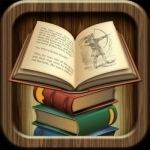
3D Classic Literature Collection
Book and Entertainment
App
• Featured by Apple in "Back to School" in the App Store (US/UK and many others...) • Featured...
Kirk Bage (1775 KP) rated Fruitvale Station (2013) in Movies
Aug 6, 2020
Here is another movie that was put up for consideration for my upcoming book 21st Century Cinema: 200 Essential Films. It didn’t quite make the final cut, but is part of the long list of honourable mentions – movies that are easy to like and recommend, but aren’t quite of the very highest quality in their respective genres.
Borderline superstar Michael B. Jordan owes his career to Ryan Coogler, which began in earnest in 2013 with the strong effort of true story Fruitvale Station, highlighting the life and final moments of Oscar Grant, who was one of a tragically long list of innocent young men murdered by the police in modern America. Since then he has gone on to star as the eponymous Creed and as the popular Erik Killmonger in Black Panther, making him more or less the most famous black actor under forty currently at work.
I mention him first because having seen the other two films first, I have to admit I wasn’t quite getting it. I mean he is fine in both movies, but nothing world beating. Then you go back to his acheivement in the earlier film and begin to see what he might be capable of given the right scripts. He pretty much embodies Oscar Grant to a degree you believe you are watching a documentary. Which is the major plus point of Ryan Coogler’s direction also.
By pulling us in to the family life of Oscar, as if we were a fly on the wall, we become connected to their story as if we were part of that inner circle, making the inevitable horror of events hit home all the harder. We watch mundane events and conversations take place with a shadow of foreboding that never crosses over into foreshadowing or signposting. The balance is very nicely done.
Melonie Diaz, as girlfriend Sophina, and especially the ever wonderful Octavia Spencer, as loving but grounded mother Wanda, offer solid support, but the camera clings to Jordan by choice, asking us to place ourselves in his shoes and feel the empathy first hand. It is a sober journey, almost totally devoid of directorial flair, which is both a strength and a weakness, ultimately.
With such an awful, heart-rending subject, it can be difficult to remove yourself into a dispassionate view of a film artistically, as the message overpowers your emotions. The best thing that can be said in this case is that the drama never crosses the line of sentimentality or overkill; it merely presents events as they were and asks you to draw your own conclusions. Having said that, I can’t over-praise it simply because the subject needs to be seen, heard, discussed and acted upon with total immediacy in the real world.
This film is already seven years old, and the issues are more pertinent than ever before, as the BLM movement rages all over the world, but especially in the USA, where the culpability and violence of police officers must be addressed and resolved before the loss of one more innocent life. The message delivered by the film is clear and unambiguous – it has to be heeded. And in that sense it is an indespensible film of great power, I would advise you to see.
And with that, it seems a moot point to criticise it, because there isn’t anything negative to say that would say anything useful. I would just say again that it doesn’t quite make the grade of the best 200 films since the Millennium. Whereas, BlacKkKlansman does. An unfair comparison in many ways, but an obvious one in others. See both. Think about them, do what you can, and help make hatred and prejudice a sad fact of history.
Decinemal Rating: 70
Borderline superstar Michael B. Jordan owes his career to Ryan Coogler, which began in earnest in 2013 with the strong effort of true story Fruitvale Station, highlighting the life and final moments of Oscar Grant, who was one of a tragically long list of innocent young men murdered by the police in modern America. Since then he has gone on to star as the eponymous Creed and as the popular Erik Killmonger in Black Panther, making him more or less the most famous black actor under forty currently at work.
I mention him first because having seen the other two films first, I have to admit I wasn’t quite getting it. I mean he is fine in both movies, but nothing world beating. Then you go back to his acheivement in the earlier film and begin to see what he might be capable of given the right scripts. He pretty much embodies Oscar Grant to a degree you believe you are watching a documentary. Which is the major plus point of Ryan Coogler’s direction also.
By pulling us in to the family life of Oscar, as if we were a fly on the wall, we become connected to their story as if we were part of that inner circle, making the inevitable horror of events hit home all the harder. We watch mundane events and conversations take place with a shadow of foreboding that never crosses over into foreshadowing or signposting. The balance is very nicely done.
Melonie Diaz, as girlfriend Sophina, and especially the ever wonderful Octavia Spencer, as loving but grounded mother Wanda, offer solid support, but the camera clings to Jordan by choice, asking us to place ourselves in his shoes and feel the empathy first hand. It is a sober journey, almost totally devoid of directorial flair, which is both a strength and a weakness, ultimately.
With such an awful, heart-rending subject, it can be difficult to remove yourself into a dispassionate view of a film artistically, as the message overpowers your emotions. The best thing that can be said in this case is that the drama never crosses the line of sentimentality or overkill; it merely presents events as they were and asks you to draw your own conclusions. Having said that, I can’t over-praise it simply because the subject needs to be seen, heard, discussed and acted upon with total immediacy in the real world.
This film is already seven years old, and the issues are more pertinent than ever before, as the BLM movement rages all over the world, but especially in the USA, where the culpability and violence of police officers must be addressed and resolved before the loss of one more innocent life. The message delivered by the film is clear and unambiguous – it has to be heeded. And in that sense it is an indespensible film of great power, I would advise you to see.
And with that, it seems a moot point to criticise it, because there isn’t anything negative to say that would say anything useful. I would just say again that it doesn’t quite make the grade of the best 200 films since the Millennium. Whereas, BlacKkKlansman does. An unfair comparison in many ways, but an obvious one in others. See both. Think about them, do what you can, and help make hatred and prejudice a sad fact of history.
Decinemal Rating: 70
Lottie disney bookworm (1056 KP) rated The Magic of Terry Pratchett in Books
May 27, 2020
As a child who was brought up in a house of Discworld stories, with a stepfather who (still) proudly displays the Clarecraft Rincewind figurine which bears an uncanny likeness to him, and a mother who has a matching Nanny Ogg (it bears no likeness but let’s just say encompasses a couple of her characteristics), this was an ARC that I was frankly desperate to read. I have to thank Netgalley and Marc Burrows for granting me this opportunity. My opinions are enthusiastic, and entirely my own.
As a 32 year old female, mother and accountant you may be forgiven for expecting my book reviews to be based around chick-lit or classical novels and, although it is the case that I own several very well-read copies of Pride & Prejudice, I am wholly a child of the sci-fi/fantasy genre. Terry Pratchett novels sit alongside George RR Martin, Terry Brooks, David Eddings and Ursula Le Guin in my house; I owned and loved Discworld computer games and probably know every word to the film Labyrinth.
It could therefore be said that I would find Marc Burrow’s biography fascinating regardless: however, I am ashamed to say that, before reading this book, I knew very little about the life of the author whose books I admire so much.
Burrows structures his writing predictably enough, running through the life of Terry Pratchett chronologically, from his working-class upbringing; his career in journalism; the progression in popularity of his novels; his knighthood all the way up to his untimely death from Alzheimer’s. However, this is where an affiliation to any standard biography ends.
It is immediately apparent that Marc Burrows is an avid Terry Pratchett fan, even without reading his foreword, due to the inclusion of footnotes: a writing style which is synonymous with Pratchett. This allows Burrows, as it did with Pratchett, to provide little notes and details which cannot be in the main text without limiting the reading experience. It also allows both authors to inject a large amount of humour into their writing.
It should also be mentioned that no book has gripped me from the introduction in a long time, although I am fairly sure no other book would use the word “crotch” before we even reach Chapter One!
‘The Magic of Terry Pratchett’ is a clever, well-informed biography which perfectly encompasses the humour of the Discworld creator whilst educating the reader of his journey to becoming the icon that he is today. I have no doubt that this has been a labour of love for Marc Burrows: when the kindle says you have 20 minutes reading time left and you have reached the bibliography, you know that a whole lot of research has been done!
Sir Terry also had the tendency to embellish his stories and this is a factor Burrows does not try to hide; highlighting when facts don't quite add up and almost analysing the situation to try and discern the truth. This was such a refreshing approach to a biography: the wool is not pulled over the eyes of the reader, nor the subject blindly believed for convenience.
It is important to note that this book transgresses the existence of Discworld and “the business with the elephant” and encompasses all of Sir Terry’s work: from short stories in the local paper to his TV documentary on assisted death.
The reader will also learn of the involvement of Rhianna Pratchett in her father’s work and discover that the “man in the hat” was not always the easiest man to work with.
I am going to need at least 3 copies upon release- can we preorder?
As a 32 year old female, mother and accountant you may be forgiven for expecting my book reviews to be based around chick-lit or classical novels and, although it is the case that I own several very well-read copies of Pride & Prejudice, I am wholly a child of the sci-fi/fantasy genre. Terry Pratchett novels sit alongside George RR Martin, Terry Brooks, David Eddings and Ursula Le Guin in my house; I owned and loved Discworld computer games and probably know every word to the film Labyrinth.
It could therefore be said that I would find Marc Burrow’s biography fascinating regardless: however, I am ashamed to say that, before reading this book, I knew very little about the life of the author whose books I admire so much.
Burrows structures his writing predictably enough, running through the life of Terry Pratchett chronologically, from his working-class upbringing; his career in journalism; the progression in popularity of his novels; his knighthood all the way up to his untimely death from Alzheimer’s. However, this is where an affiliation to any standard biography ends.
It is immediately apparent that Marc Burrows is an avid Terry Pratchett fan, even without reading his foreword, due to the inclusion of footnotes: a writing style which is synonymous with Pratchett. This allows Burrows, as it did with Pratchett, to provide little notes and details which cannot be in the main text without limiting the reading experience. It also allows both authors to inject a large amount of humour into their writing.
It should also be mentioned that no book has gripped me from the introduction in a long time, although I am fairly sure no other book would use the word “crotch” before we even reach Chapter One!
‘The Magic of Terry Pratchett’ is a clever, well-informed biography which perfectly encompasses the humour of the Discworld creator whilst educating the reader of his journey to becoming the icon that he is today. I have no doubt that this has been a labour of love for Marc Burrows: when the kindle says you have 20 minutes reading time left and you have reached the bibliography, you know that a whole lot of research has been done!
Sir Terry also had the tendency to embellish his stories and this is a factor Burrows does not try to hide; highlighting when facts don't quite add up and almost analysing the situation to try and discern the truth. This was such a refreshing approach to a biography: the wool is not pulled over the eyes of the reader, nor the subject blindly believed for convenience.
It is important to note that this book transgresses the existence of Discworld and “the business with the elephant” and encompasses all of Sir Terry’s work: from short stories in the local paper to his TV documentary on assisted death.
The reader will also learn of the involvement of Rhianna Pratchett in her father’s work and discover that the “man in the hat” was not always the easiest man to work with.
I am going to need at least 3 copies upon release- can we preorder?
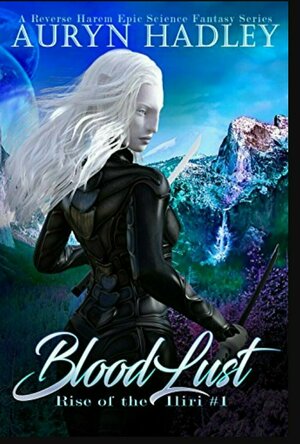
Bloodlust (The Rise Of Iliri #1)
Book
"Bloodlust, and the Rise of the Iliri series as a whole, will blow you mind, break your heart, and...
Young adult Vampire Vampyre Ilirri Young adult Teen
"As far as I’m concerned, I came out of the womb spouting cynicism and wishing for rain."
"As far as I’m concerned, I came out of the womb spouting cynicism and wishing for rain."
A while back, I read an online comic strip by the same author, Heartstopper Volume 1. I found it by chance and I literally flew through it. I adored it and I went ahead and TBR’d some of her other books. I found this one on Scribd and come to find this was her baby. This was her debut novel. The story was pretty good, it is NOT a love story, but I sometimes found myself getting frustrated with the main character. Reasons why are listed below.
The story is told from a teenager named Victoria ‘Tori’ Spring. She has two younger brothers and she is quite…indifferent. She has one best friend, and honestly one friend only, and she’s very much the pessimist. I can’t fully fault her for that, but some things that I just CANNOT tolerate. I found myself gasping and GLARING at the words as I read them.
She hates books. Yes, she said she hates books (-1 point). She knows the name of each book and the author who wrote them, but she won’t actually read them.
Though she loves film so I’ll give the point back to her (0).
"When you watch a film, you’re sort of an outsider looking in. With a book – you’re right there. You are inside. You are the main character."
She thinks Pride and Prejudice is ridiculous and boring…she gets positive points for that (+2) – I’m sorry I’m in the minority. I do not care for Jane Austen and find her so called romance novels dull and boring. Not sorry!
She despises Disney because the movies are total fake and unrealistic. WELL NO SHIT! It’s DISNEY! (-200) – I’m a Disney nerd and while I don’t agree with sugar coating the original fair tales, I still LOVE Disney. You can’t fault me for that!
Anyway…
Tori is highly cynical and while I can appreciate that in her, sometimes she made my favorite cartoon character, Daria, seem like a sweetheart. Two guys come into Tori’s life. One was an old childhood friend, Lucas, and the other is someone she met before, Michael. At the same time, a blog group called ‘Solitaire’ starts making trouble…almost in Tori’s honor.
I won’t go into great detail, mostly because I would definitely give more away than I want to. I breezed through this story quickly, but there are just some things in the story that just didn’t sit well with me.
This guy Lucas was so sketchy that he nearly drove Tori crazy with his change in personality.
Her parents…they literally do not seem to care. Her mother most of all. She is mostly on her computer and seems to kind of be absent, mentally, as a parental figure. That never gets resolved, and I don’t know if that’s a good thing or bad thing. In the end, it really bothered me at how disinterested her parents really were. I get that perhaps it’s something you do when you’re bringing up teenagers, but damn!!
"I swear to God I’m a freak! I mean it. One day I’m going to forget how to wake up."
You’re probably thinking that this really doesn’t seem like it would be in the mental health genre. It is. Tori goes through an awful lot in this story, not to mention the mental strain with her brother, Charlie. I will say there are some MILD trigger warnings regarding implied self harm.
I was kind of left with mixed emotions with this book. I have great respect for this author and this being her first story. I know it’s near and dear to her heart. I wouldn’t say that this was at the top of my list, but it’s not at the bottom either. I definitely appreciated it NOT BEING a love story. Although it seemed like it would, despite the subtitle of the book, but I’m glad it wasn’t.
A while back, I read an online comic strip by the same author, Heartstopper Volume 1. I found it by chance and I literally flew through it. I adored it and I went ahead and TBR’d some of her other books. I found this one on Scribd and come to find this was her baby. This was her debut novel. The story was pretty good, it is NOT a love story, but I sometimes found myself getting frustrated with the main character. Reasons why are listed below.
The story is told from a teenager named Victoria ‘Tori’ Spring. She has two younger brothers and she is quite…indifferent. She has one best friend, and honestly one friend only, and she’s very much the pessimist. I can’t fully fault her for that, but some things that I just CANNOT tolerate. I found myself gasping and GLARING at the words as I read them.
She hates books. Yes, she said she hates books (-1 point). She knows the name of each book and the author who wrote them, but she won’t actually read them.
Though she loves film so I’ll give the point back to her (0).
"When you watch a film, you’re sort of an outsider looking in. With a book – you’re right there. You are inside. You are the main character."
She thinks Pride and Prejudice is ridiculous and boring…she gets positive points for that (+2) – I’m sorry I’m in the minority. I do not care for Jane Austen and find her so called romance novels dull and boring. Not sorry!
She despises Disney because the movies are total fake and unrealistic. WELL NO SHIT! It’s DISNEY! (-200) – I’m a Disney nerd and while I don’t agree with sugar coating the original fair tales, I still LOVE Disney. You can’t fault me for that!
Anyway…
Tori is highly cynical and while I can appreciate that in her, sometimes she made my favorite cartoon character, Daria, seem like a sweetheart. Two guys come into Tori’s life. One was an old childhood friend, Lucas, and the other is someone she met before, Michael. At the same time, a blog group called ‘Solitaire’ starts making trouble…almost in Tori’s honor.
I won’t go into great detail, mostly because I would definitely give more away than I want to. I breezed through this story quickly, but there are just some things in the story that just didn’t sit well with me.
This guy Lucas was so sketchy that he nearly drove Tori crazy with his change in personality.
Her parents…they literally do not seem to care. Her mother most of all. She is mostly on her computer and seems to kind of be absent, mentally, as a parental figure. That never gets resolved, and I don’t know if that’s a good thing or bad thing. In the end, it really bothered me at how disinterested her parents really were. I get that perhaps it’s something you do when you’re bringing up teenagers, but damn!!
"I swear to God I’m a freak! I mean it. One day I’m going to forget how to wake up."
You’re probably thinking that this really doesn’t seem like it would be in the mental health genre. It is. Tori goes through an awful lot in this story, not to mention the mental strain with her brother, Charlie. I will say there are some MILD trigger warnings regarding implied self harm.
I was kind of left with mixed emotions with this book. I have great respect for this author and this being her first story. I know it’s near and dear to her heart. I wouldn’t say that this was at the top of my list, but it’s not at the bottom either. I definitely appreciated it NOT BEING a love story. Although it seemed like it would, despite the subtitle of the book, but I’m glad it wasn’t.
Hazel (1853 KP) rated There Will Be Lies in Books
Dec 17, 2018
<i>This eBook was provided by the publisher via NetGalley in exchange for an honest review </i>
Award winning Nick Lake has returned to the limelight with a young adult thriller so full of emotion that you will be gripped from beginning to end. <i>There Will Be Lies </i>starts with a happy relationship between mother and daughter, then rips it apart revealing that everything you once believed true is a lie.
From the very beginning seventeen year old Shelby Jane Cooper warns the reader that bad things are going to happen. She speaks of death and of a car collision that is about to occur within the first few chapters of the story. But this is not the climax of the story. It is merely the small stone dropped on the top of a mountain, causing an avalanche of questions, danger and the slowly unraveling truth.
All her life Shelby has been homeschooled, isolated from society and shadowed by her over protective mother. After being hit by a car, resulting in a fractured foot, Shelby is ushered into a car by her mother and driven in the opposite direction from home. Supposedly an abusive father, a man Shelby cannot recall, is on their tail whom they must hide from to avoid a disastrous confrontation. Despite initially believing this story, peculiar things start happening to Shelby that suggest all is not as it seems.
The first quarter of <i>There Will Be Lies</i> follows a typical contemporary storyline, but as it becomes more thrilling, the author incorporates fantasy/American mythology into the mix. Finding herself slipping in and out of a dying, impossible world known as the <i>Dreaming</i>, Shelby begins to hesitate to believe the things her mother is telling her, especially after being warned that there will be two lies followed by a truth. Yet she cannot work out what they are; and what if the truth is something she cannot, does not want, to consider?
I loved this book from the very beginning. I loved Shelby’s character: the way she spoke, her sarcasm, her wit, her intelligence. I liked that despite being so sheltered from the world, she was not weird or awkward. What made it even better was discovering she was deaf. Readers will not even be able to guess at that for almost half the novel, when Shelby reveals the fact herself. She is not portrayed as stupid or any less human for having a disability. Nick Lake has done a superb job of avoiding any forms of stigma or prejudice.
With the story picking up the pace, my love was almost turned to hate. Almost. The fantastical elements, the American mythology, which gave it the appearance of a half fairytale, very nearly ruined the entire book for me. I admit I liked the concept and enjoyed reading the scenes set in the <i>Dreaming</i>, but it seemed so out of place with the rest of the novel. It felt as though Lake had written two different stories and decided to combine them together instead of publishing them separately. However, as I said, this only ALMOST ruined it.
As the story progressed, the relevance of the fairy-tale-like elements became clearer. You cannot say for sure whether the <i>Dreaming</i> was real or whether Shelby was merely doing that: dreaming. But what you can say is that the mythological storyline is a metaphorical way of showing what Shelby was dealing with in the real world. In a place where she was confused about what was true, she needed the <i>Dreaming</i> to explain things to her, to make her understand her predicament.
<i>There Will Be Lies </i>is full of little metaphors, some that you do not notice at first, but can easily be applied to life in general. It is an extremely quotable narrative with beautiful phrasing. With two thrilling storylines that eventually merge together, it is guaranteed that you will be gripped, wanting to know what happens; yet also not wanting it to end.
Award winning Nick Lake has returned to the limelight with a young adult thriller so full of emotion that you will be gripped from beginning to end. <i>There Will Be Lies </i>starts with a happy relationship between mother and daughter, then rips it apart revealing that everything you once believed true is a lie.
From the very beginning seventeen year old Shelby Jane Cooper warns the reader that bad things are going to happen. She speaks of death and of a car collision that is about to occur within the first few chapters of the story. But this is not the climax of the story. It is merely the small stone dropped on the top of a mountain, causing an avalanche of questions, danger and the slowly unraveling truth.
All her life Shelby has been homeschooled, isolated from society and shadowed by her over protective mother. After being hit by a car, resulting in a fractured foot, Shelby is ushered into a car by her mother and driven in the opposite direction from home. Supposedly an abusive father, a man Shelby cannot recall, is on their tail whom they must hide from to avoid a disastrous confrontation. Despite initially believing this story, peculiar things start happening to Shelby that suggest all is not as it seems.
The first quarter of <i>There Will Be Lies</i> follows a typical contemporary storyline, but as it becomes more thrilling, the author incorporates fantasy/American mythology into the mix. Finding herself slipping in and out of a dying, impossible world known as the <i>Dreaming</i>, Shelby begins to hesitate to believe the things her mother is telling her, especially after being warned that there will be two lies followed by a truth. Yet she cannot work out what they are; and what if the truth is something she cannot, does not want, to consider?
I loved this book from the very beginning. I loved Shelby’s character: the way she spoke, her sarcasm, her wit, her intelligence. I liked that despite being so sheltered from the world, she was not weird or awkward. What made it even better was discovering she was deaf. Readers will not even be able to guess at that for almost half the novel, when Shelby reveals the fact herself. She is not portrayed as stupid or any less human for having a disability. Nick Lake has done a superb job of avoiding any forms of stigma or prejudice.
With the story picking up the pace, my love was almost turned to hate. Almost. The fantastical elements, the American mythology, which gave it the appearance of a half fairytale, very nearly ruined the entire book for me. I admit I liked the concept and enjoyed reading the scenes set in the <i>Dreaming</i>, but it seemed so out of place with the rest of the novel. It felt as though Lake had written two different stories and decided to combine them together instead of publishing them separately. However, as I said, this only ALMOST ruined it.
As the story progressed, the relevance of the fairy-tale-like elements became clearer. You cannot say for sure whether the <i>Dreaming</i> was real or whether Shelby was merely doing that: dreaming. But what you can say is that the mythological storyline is a metaphorical way of showing what Shelby was dealing with in the real world. In a place where she was confused about what was true, she needed the <i>Dreaming</i> to explain things to her, to make her understand her predicament.
<i>There Will Be Lies </i>is full of little metaphors, some that you do not notice at first, but can easily be applied to life in general. It is an extremely quotable narrative with beautiful phrasing. With two thrilling storylines that eventually merge together, it is guaranteed that you will be gripped, wanting to know what happens; yet also not wanting it to end.
Gareth von Kallenbach (980 KP) rated BlacKkKlansman (2018) in Movies
Jul 8, 2019
From Director Spike Lee comes the incredible story of true American hero. In the early 1970s, Ron Stallworth (John David Washington) is the first African-American detective to serve in the Colorado Springs Police Department. Determined to make a name for himself, Stallworth bravely sets out on a dangerous mission: infiltrate and expose the Ku Klux Klan. The movie is based on Stallworth’s 2014 book Black Klansman, which details his experience. When it came time to meet the Klan members face-to-face, he utilized the help of a white undercover narcotics officer (Adam Driver in the movie), who posed as Stallworth for all in-person meetings with the Klan. Together, they team up to take down the extremist hate group as the organization aims to sanitize its violent rhetoric to appeal to the mainstream.
The film is very creative in the way that it presents history and allows the audience ride along with the action, suspense, and anxiety experience by Washington and Driver’s characters. The tone of the film, at times, is lighthearted in its approach but quickly draws you back in when faced with the reality that David Duke, and people like him walk among us dressing up their racism with non-threatening slogans, professional attire, and a clean-cut package.
The story displayed is a reminder that racism in America has a long history and is not isolated geographically to the south nor limited to Charlottesville or Charleston. The attitudes and actions committed by those who agree with the stances of white supremacy and white supremacist organizations have had a drastic impact on the development of American society. It has shaped and misshapen our attitudes towards one another. It continues to affect us today as we all bear witness to unbridled racism or the downplaying of racism with terms like “political correctness.” This film is timely in its approach and offers audiences a more full and expansive view of what combatting racism and racist attitudes and actions looks like.
Blackkklansman is a film that many have waited for when first hearing about the story of Ron Stallworth and they will not be disappointed with what they witness on screen. Sadly, the people who desperately need to see this movie may pass on it because they are uncomfortable with the subject matter and the reality that they themselves may be complicit in the continuance of racism and white supremacy. This film feels like a conversation being conducted directly between the director and audience. There are subtleties that allow the audience to think about the meaning and even parallel between the early 1970s and the current political environment, as well as, moments where there is no hiding of the message, no metaphor, no allegory. The filmmakers make it clear for those watching that many of us need to wake up almost as blatantly as Spike Lee promotes one of his earlier films, School Daze.
The only problem I found with the film was that I was left wanting more discussion. I wanted to see more of what Ron Stallworth dealt with as the only black detective in his department. If anything, this shows a real strength in the film by leaving audiences emotionally connected with the horrors that he faced, as well as, the way that those around him come to grips with the reality of the hatred and racial violence that had overlooked before because it did not have a direct effect on them. Blackkklansman is a film that will have audiences reflecting long after the credits have rolled. Hopefully the themes, metaphors, and overall message will help foster overdue and well-needed conversations about race, racism, prejudice, and violence. This film takes audiences out of their comfort zones and forces them to face some of the dark corners of America for two hours. Within that two hours, hopefully the people who don’t recognize racism and bigotry get a glimpse of the true horror and fear that marginalized communities feel on a daily basis so that they themselves can be agents of change and fight against racism.
The film is very creative in the way that it presents history and allows the audience ride along with the action, suspense, and anxiety experience by Washington and Driver’s characters. The tone of the film, at times, is lighthearted in its approach but quickly draws you back in when faced with the reality that David Duke, and people like him walk among us dressing up their racism with non-threatening slogans, professional attire, and a clean-cut package.
The story displayed is a reminder that racism in America has a long history and is not isolated geographically to the south nor limited to Charlottesville or Charleston. The attitudes and actions committed by those who agree with the stances of white supremacy and white supremacist organizations have had a drastic impact on the development of American society. It has shaped and misshapen our attitudes towards one another. It continues to affect us today as we all bear witness to unbridled racism or the downplaying of racism with terms like “political correctness.” This film is timely in its approach and offers audiences a more full and expansive view of what combatting racism and racist attitudes and actions looks like.
Blackkklansman is a film that many have waited for when first hearing about the story of Ron Stallworth and they will not be disappointed with what they witness on screen. Sadly, the people who desperately need to see this movie may pass on it because they are uncomfortable with the subject matter and the reality that they themselves may be complicit in the continuance of racism and white supremacy. This film feels like a conversation being conducted directly between the director and audience. There are subtleties that allow the audience to think about the meaning and even parallel between the early 1970s and the current political environment, as well as, moments where there is no hiding of the message, no metaphor, no allegory. The filmmakers make it clear for those watching that many of us need to wake up almost as blatantly as Spike Lee promotes one of his earlier films, School Daze.
The only problem I found with the film was that I was left wanting more discussion. I wanted to see more of what Ron Stallworth dealt with as the only black detective in his department. If anything, this shows a real strength in the film by leaving audiences emotionally connected with the horrors that he faced, as well as, the way that those around him come to grips with the reality of the hatred and racial violence that had overlooked before because it did not have a direct effect on them. Blackkklansman is a film that will have audiences reflecting long after the credits have rolled. Hopefully the themes, metaphors, and overall message will help foster overdue and well-needed conversations about race, racism, prejudice, and violence. This film takes audiences out of their comfort zones and forces them to face some of the dark corners of America for two hours. Within that two hours, hopefully the people who don’t recognize racism and bigotry get a glimpse of the true horror and fear that marginalized communities feel on a daily basis so that they themselves can be agents of change and fight against racism.
